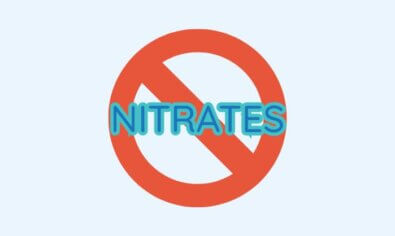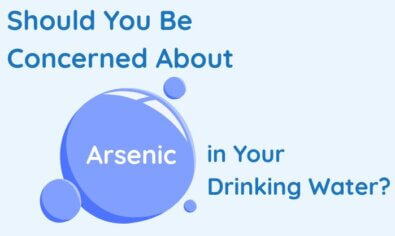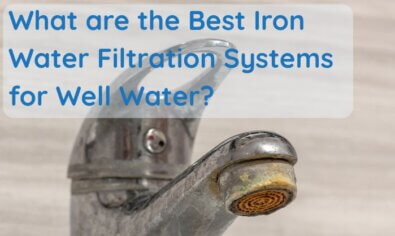9 Awful Hard Water Effects to Watch Out for in Your Home
In this blog, you will learn:
Hard water often contains cancer-causing contaminants, such as radium and radon.
The high mineral count in hard water can also cause dry, itchy skin and brittle hair.
Harmful hard water effects on the home include broken appliances, clogged plumbing, cloudy dishes and more.
The best way to get rid of hard water effects is with an NSF 44 certified water softener or reverse osmosis filter.

These Hard Water Effects Could Be Making Your Life Miserable!
Let’s be honest. Life is hard enough as it is without all the extra problems it can throw our way.
For example, isn’t it frustrating to work hard all day only to come home and discover your dishwasher broke down? Or what about trying to enjoy life when you have dry, itchy skin? Most devastating of all, how are you supposed to function when you or a loved one gets diagnosed with cancer?
We don’t bring up these hypothetical examples to depress you. Rather, we bring them up because these are just some of the problems you could be dealing with if you have hard water in your home. In fact, in this blog, we will discuss nine common hard water effects to watch out for.
But we won’t just stop there. We will also explain how you can defend your health and home from all these harmful effects of hard water! Keep reading to learn the simple solution to all the following issues.
1. Consuming Cancer-Causing Radium
One of the biggest misconceptions people have about the tap water in their home is that it’s perfectly safe to consume. They often base this assumption on the fact that we have water quality standards in this country. And the EPA must be protecting us from all the most harmful contaminants, right?
If only that were the case! Unfortunately, despite all the government drinking water standards, contaminants still find their way into our water. This is especially true for people with private wells, whose water receives no municipal treatment. But even for people with city water, the treatment can’t catch everything, and pollutants still fall through the cracks.
That brings us to radium. Radium is a naturally occurring radioactive element that is frequently found in Northern Illinois groundwater.
While the EPA has set a national limit for radium at 5 pCi/L, organizations like the Environmental Working Group (EWG) suggest this is too high. The EWG recommends no more than 0.05 pCi/L in water to protect public health. And the drinking water in many Northern Illinois cities easily exceeds that limit.
This is problematic because, over time, consuming too much radium can cause many dangerous hard water health effects. These include cancer, kidney damage and health problems in newborn children.
To find out if radium is a problem in your region, we recommend checking out the EWG website. There you can find water test results for cities throughout the country along with the EPA regulations and the EWG’s much stricter health guidelines. To know how much radium you’re dealing with in your own home, we recommend getting your water tested at a licensed facility.
2. Inhaling Dangerous Radon Gas
Not only is it dangerous to consume hard water containing radium, but the water can also be dangerous to inhale when it mixes with the air. This is because when radium is exposed to air, it turns into radon.
Radon is an odorless, tasteless gas that can cause lung cancer. In fact, the Surgeon General called radon the second most common cause of lung cancer in the country behind only smoking!
So, if you have hard water, you could be inhaling deadly radon gas when you’re taking a hot shower and not even know it!
3. Scratching Dry and Itchy Skin
Along with radium and radon, hard water contains high amounts of calcium and magnesium. When you bathe in hard water, these minerals tend to build up in the pores of your skin and stick around long after you’ve dried off.
As a result, hard water can lead to cracked and broken skin after washing. The effects of hard water on skin also tend to worsen conditions like psoriasis, eczema and acne. Plus, it can lead to hair loss when calcium and magnesium build up around hair follicles.
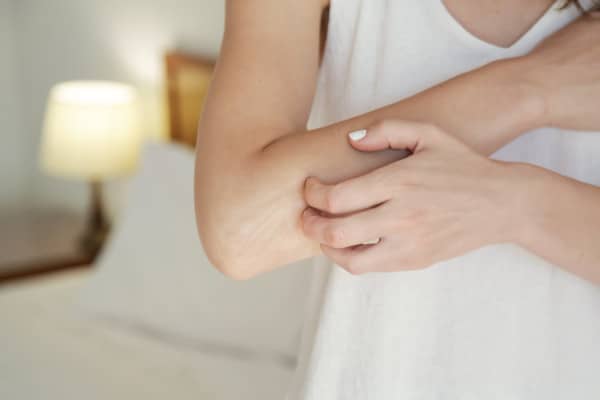
4. Struggling with Dry, Brittle Hair
Speaking of hair, hard water is no friend to a well-kept hairdo either! When the calcium and magnesium ions interact with hair follicles, they make the tiny scales that cover the follicle stand up. As a result, the hair tends to dry out quicker and tangle easier.
So, if you’ve been getting frustrated with a lot of unruly split ends lately, these could be hard water effects on your hair.
5. Replacing Broken Down Appliances
As if these health problems weren’t enough, hard water can also wreak havoc on the appliances in your home. Two of the most common appliances hard water destroys are water heaters and dishwashers.
These two machines frequently feel hard water’s wrath because of the heat they generate. When a water heater or a dishwasher heats hard water, it causes the calcium in the water to solidify. These solid calcium deposits get left behind in the appliances, and over time they gum up the works.
Illinois Water Utilities have been reporting some gross contaminants!
Check out the concerning contamination that has been reported by public water utilities in Illinois!

Thus, over time, water heaters lose their effectiveness as their heating elements are caked over with calcium. Dishwashers don’t work as well either. And eventually, the systems break down, creating an inconvenient and expensive headache for homeowners.
6. Dealing with Clogged Pipes
This calcium buildup is also a problem in a home’s plumbing system. As hard water flows through pipes, it can’t help but leave behind bits of calcium and magnesium. And sooner or later, the minerals can clog up the pipes just like cholesterol can plug up arteries.
So, how do you know if hard water is having this effect on your plumbing? A clear sign is if the water pressure in your home seems to be steadily decreasing over time. If you’re concerned this may be the problem, we recommend having a licensed plumber inspect your system to see if excess calcium is gumming up the works.
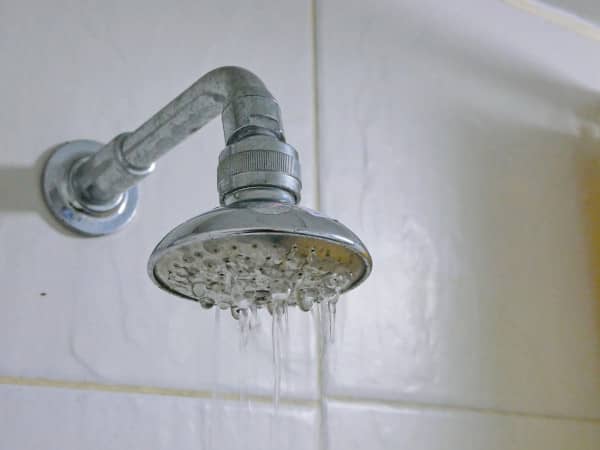
7. Leaving Marks on Faucets and Dishware
If health problems and damage to the home weren’t enough, hard water effects can also be embarrassing! After all, it’s pretty awkward to offer people drinks in cloudy glasses when you have them over for dinner. And even the most beautifully decorated bathroom can look dingy if it has faucets covered with a white film.
Unfortunately, these hard water effects frequently occur with faucets and dishware. The white film forms on faucets as the excess calcium and magnesium cling to the fixtures as the water hits the air. The high mineral count also makes it harder for the water to rinse dishes effectively. So, excess soap film and dirty water get left behind, making the dishes appear cloudy.
The worst part about these issues is that they’re tough to get rid of them with standard cleaning supplies. The excess calcium deposits on faucets rarely scrub off easily, and the extra money you’ll have to spend on dish soap can add up quickly. And using too much detergent can actually worsen the problem!
8. Noticing Increasingly Faded Clothing
Hard water can also take the satisfaction out of washing your clothes. Over time, clothes washed in hard water can become discolored. Brightly colored items tend to fade, and white clothes can develop a yellowish tint.
These problems occur because the high amounts of calcium and magnesium in hard water don’t mix well with laundry detergent. They combine to form a residue that sticks to the clothing. Not only can this residue discolor the clothing, but it can also make the clothing feel uncomfortably rigid and grimy after washing.
9. Paying Higher Bills
All of the problems listed above have something in common: they can wind up costing you money. After all, consuming harmful contaminants can lead to costly medical bills, and replacing broken pipes and appliances isn’t cheap.
But even beyond that, hard water can dramatically raise your utility bills as it gums up the works in your home. In fact, the Water Quality Research Council estimates that it costs 29% more to heat hard water!
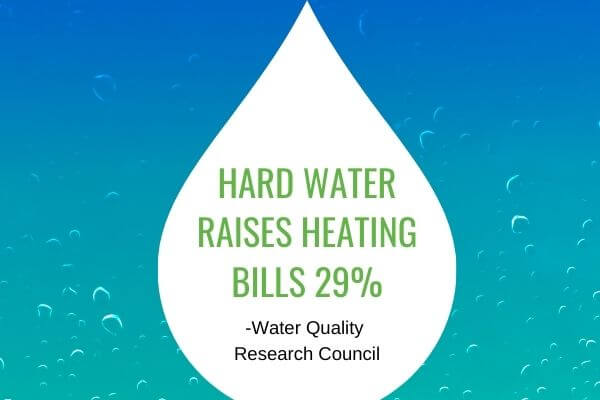
The Solution: Investing in a Water Softener or Reverse Osmosis System
If you’re like us, you want no part of any of the problems listed above! And while there are some quick fixes out there for some of the problems, the only solutions that will eliminate all the problems are water softeners and reverse osmosis (RO) systems.
An ion-exchange water softener system neutralizes all hard water effects through a simple and proven scientific method. The system consists of a tank containing positively charged media, and the calcium, magnesium and radium in hard water all have a negative charge. So, when the hard water flows through the media, the negatively charged minerals leap off the water droplets and cling to the media. As a result, the water, now free from the minerals that cause hardness, can safely flow into your home!
RO systems can also remove calcium, magnesium and radium. They do this by forcing the water through a semipermeable membrane that filters out the pollutants. The nice thing about RO systems is they also remove many other harmful contaminants like lead, chromium-6 and mercury.
Of course, not all water softeners or reverse osmosis systems are created equal. And unfortunately, there are companies out there that will try to sell you a subpar system. The key to avoiding getting scammed is to purchase an NSF 44 certified system(not just NSF-61). When a system has the NSF seal of approval, it indicates that it has gone through thorough testing and has been proven to do what it says it will do.
Say Goodbye to Hard Water!
If you’re sick of the effects of hard water, we would love to help you find the right softener or reverse osmosis system for your home. We offer a wide selection of NSF 44 certified models for you to choose from, and our licensed experts can install them properly to give you lasting results!
Give us a call today at 847-382-7800 to talk to one of our experts. Or, if you’d like to start shopping online, try our interactive Water Wizard for virtual expert guidance!
Interested in a Water Softener System for Your Home?
You don’t have to live with a dry, itchy scalp and brittle hair anymore! It would be our pleasure to help you find the right water softener to make your showers enjoyable again.
Please give us a call at (847) 382-7800 or visit our water softener page to learn more.

